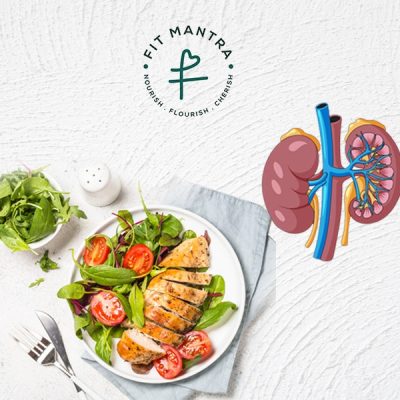If you’re living with kidney disease, a kidney-healthy diet plays a crucial role in managing your condition, reducing complications, and protecting your overall health. A renal diet focuses on specific nutrients and dietary changes to ease the burden on your kidneys and support their function.
What is a Renal Diet?
A renal diet isn’t a one-size-fits-all plan. Your specific dietary needs depend on the stage of your kidney disease. Here are the crucial areas a kidney disease diet usually addresses:
Potassium Control: Damaged kidneys may struggle to filter excess potassium, which can affect heart health. Your kidney healthy diet may need to be tailored to include low-potassium foods.
Phosphorus Limits: High phosphorus levels can weaken bones and damage blood vessels. A renal diet often restricts phosphorus-rich foods.
Sodium (Salt) Reduction: Limiting salt helps manage blood pressure, crucial for those with kidney disease.
Protein Management: The right amount of protein is essential –– too much can stress kidneys, and too little can lead to malnutrition.
Fluid Balance: Some stages of kidney disease may require fluid monitoring.
Kidney-Friendly Eating: What’s on the Menu?
A renal diet focuses on delicious, whole foods:
Fruits & Vegetables: Choose lower-potassium options like berries, apples, cauliflower, onions, and peppers.
Lean Proteins: Skinless chicken, fish, beans, and eggs are great choices. Your dietitian can determine your individual protein needs based on the stage of your kidney disease.
Whole Grains: Brown rice, quinoa, and whole-wheat bread in moderation.
Healthy Fats: Olive oil, avocado, and nuts in controlled portions.
Foods to Limit/Avoid on a Renal Disease Diet
These are often restricted when following a healthy diet for kidney disease:
High-Sodium Foods: Processed foods, fast food, canned soups, and salty snacks.
High-Potassium Foods: Bananas, tomatoes, potatoes, and oranges (specific restrictions depend on your individual levels).
High-Phosphorus Foods: Dairy products, processed meats, colas, and certain whole grains.
Practical Tips for Success on a Kidney Disease Diet
Partner with a Dietitian: A Qualified dietitian specializing in renal nutrition is your best ally! They create a personalized meal plan.
Read Labels: Check nutrition facts to monitor sodium, potassium, and phosphorus content.
Flavor Without Salt: Herbs, spices, lemon juice, and garlic enhance flavor without added sodium.
Home Cooking: This gives you the most control over ingredients and preparation methods
Beyond Diet: Supporting Kidney Health
Manage Blood Pressure: Aim for healthy blood pressure numbers as suggested by your doctor.
Manage Blood Sugar: If you have diabetes, controlled blood sugar levels are especially important for kidney health.
Stay Active: Talk to your doctor about safe and suitable exercises.
Medication Adherence: Take prescribed medications to manage kidney disease complications.
Important Note: Always consult your doctor and a qualified dietitian before making significant changes to your diet. They’ll personalize a plan based on your unique health needs and preferences.




